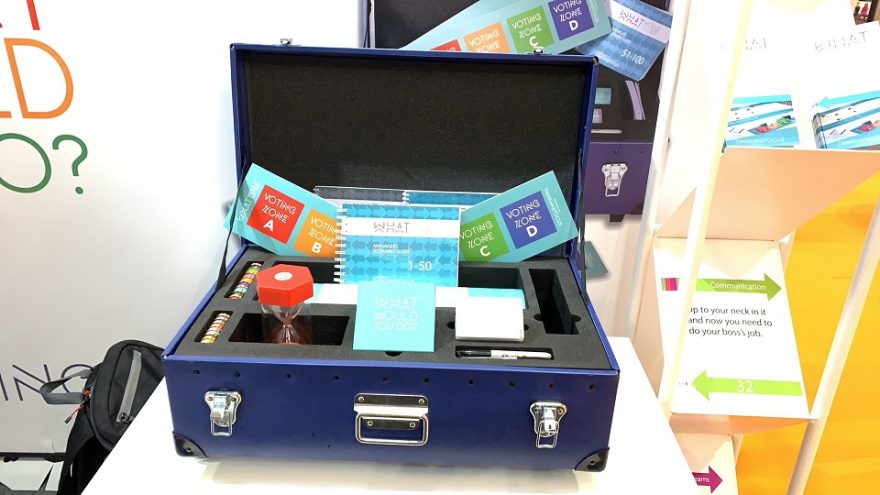We are looking forward to attending the Festival of Work, a fantastic new event run by the CIPD, and showcasing our game-based learning resource What Would You Do? (WWYD).
Running in London on June 12 and 13, the Festival of Work combines the CIPD’s Learning and Development and HR Software and Recruitment shows, with an added element focusing on the future of work.
It should be an informative and inspiring event for HR and L&D professionals – and we’re hoping some of them might like to drop by our stand and try out What Would You Do?
Based on concepts of peer-assisted learning and psychological safety, the game aims to prepare managers for potential workplace situations before they occur in reality.
We’re firm believers in the power of game-based learning, and we’ve witnessed the benefits for ourselves while introducing What Would You Do? to L&D practitioners.
So this blog takes a look at the reasons why game-based learning is so effective in helping to solve business and management issues. Read on to find out more.
Why use game-based learning?
- It unlocks latent tacit knowledge and skills
All employees have knowledge that’s almost never utilised. Game-based learning can unearth this hidden potential by bringing people together to discuss everyday scenarios, and share knowledge and insights.
- It brings learning to life
Fed up with not getting ROI from your training investment? When learning lacks practical application, it fails to stick. Gamification brings teams together to discuss how the theory they’ve learnt in the classroom would work in practice, test meaning and find a solution to common issues.
- It removes friction and improves collaboration
Gamification makes learning social, which improves collaboration, communication and team work. It helps to break down internal friction and barriers by increasing awareness of peers’ roles, ideas, perceptions and experience.
- It removes silos and presents the bigger picture
Specialised teams (silos) can be susceptible to a lack of communication, an insular perspective and unhealthy internal politics. Game-based learning brings people together from different teams, increasing collaboration and communication, creating continuity, and helping individuals see issues from a wider viewpoint.
- It creates psychological safety
Gamification creates a safe environment for players to share thoughts and ideas, and to discuss and debate issues in the interest of playing the game. This means players can be more open, communicative and creative without fear of failure.
- It’s engaging and fun!
Traditional training can be uninspiring and fail to resonate with learners. Instead, when people focus on a game, they are so engaged, they don’t even realise they are learning!
Find out more about our game-based learning tool What Would You Do? by visiting stand F11 at the Festival of Work on June 12th and 13th at Olympia London.
Or click here to read more.

